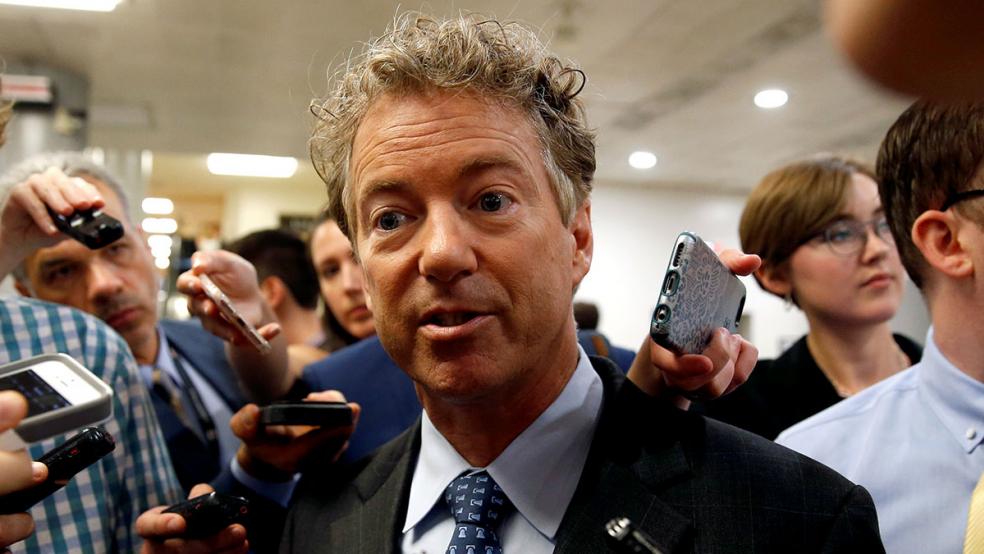Republican Sen. Rand Paul is catching flak for requesting federal aid for his home state of Kentucky after the severe weather that flattened towns and killed dozens of people this past weekend. The combative libertarian has long opposed giving federal aid to states that experience severe weather like the tornadoes that ripped through parts of the South and Midwest, arguing that any funds provided by the government should be offset by cuts elsewhere in the federal budget.
In 2013, for example, Paul voted against federal aid for states in the Northeast struck by Hurricane Sandy. “I would have given them nine billion and I would've taken the nine billion from somewhere else,” Paul said at the time. “I would have taken it from foreign aid and said you know what, we don't have money for Egypt or Pakistan this year because we have to help the Northeast.”
But now, with his state facing hundreds of millions and perhaps billions of dollars in damages, Paul has changed his tune, sending a letter to the White House in support of Kentucky Gov. Andy Beshear’s request for federal aid. While Paul asked for “expeditious approval” of the request, he made no mention of offsetting the cost through cuts elsewhere in the budget, nor did he offer a discussion of the perils of using “someone else's money” to provide aid, as he did when Congress was trying to assist Texas, Louisiana, Florida and Puerto Rico after hurricanes in 2017.
Critics were quick to highlight Paul’s about-face. “One almost feels guilty pointing out the hypocrisy of people like Paul, because it's just so easy,” says Michael Hiltzik of The Los Angles Times, adding that “Republican posturing against disaster aid ‘for thee, but not for me’ is a hardy perennial on Capitol Hill.”
In an op-ed Tuesday, liberal economist Paul Krugman argues Paul’s hypocrisy runs deeper than flip-flopping on disaster aid. Red states are often led by politicians who preach self-reliance and austerity, but are in fact heavily subsidized by wealthier states. According to data from the Rockefeller Institute, Kentucky receives $14,000 per capita more in federal benefits than it pays in taxes. “To put this in perspective, Kentucky’s 2019 net inflow of federal funds — $63 billion — was roughly 30 percent of the state’s G.D.P. that year,” Krugman writes.
The problem, though, isn’t that Kentucky runs a deficit with respect to federal payments. According to Krugman, the problem lies in the political game some Red-state politicians play as they seek to delegitimize government spending while happily accepting the benefits:
“As a lower-income state, Kentucky receives the full benefit of federal programs like Medicare, but pays relatively little in income or payroll taxes, so it gets much more than it pays in. And that is actually how the social safety net is supposed to work. We want individuals who for whatever reason are hurting financially to receive support from the more fortunate, which necessarily implies large transfers from rich states like New Jersey to lower-income states like Kentucky.
“What’s not OK is when states that are huge net beneficiaries of progressive taxation and the social safety net preen and posture about self-reliance and the evils of big government. It’s even worse when they assert some kind of moral superiority over the metropolitan areas that pay their bills.”




